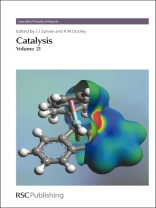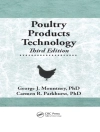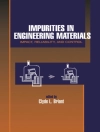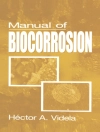Specialist Periodical Reports provide systematic and critical review coverage in major areas of chemical research. Compiled by teams of leading authorities in the relevant subject, the series creates a unique service for the active research chemist with regular critical in-depth accounts of progress in particular areas of chemistry. Subject coverage of all volumes is very similar and publication is on an annual or biennial basis. There is an increasing challenge for chemical industry and research institutions to find cost-effective and environmentally sound methods of converting natural resources into fuels, chemicals and energy. Catalysts are essential to these processes and the Catalysis Specialist Periodical Report series serves to highlight major developments in this area. This series provides systematic and detailed reviews of topics of interest to scientists and engineers in the catalysis field. The coverage includes all major areas of heterogeneous and homogeneous catalysis as well as specific applications of catalysis such as NOx control, kinetics and experimental techniques such as microcalorimetry. Each chapter is compiled by recognised experts within their specialist fields, and provides a summary of the current literature. This series will be of interest to all those in academia and industry who need an up-to-date critical analysis and summary of catalysis research and applications. Volume 21 covers literature published during 2006.
Table of Content
Front matter;Preface;Contents;Heterogeneous catalysis for production of value-added chemicals from biomass;Catalytic and photocatalytic removal of pollutants from aqueous sources;Nano-architecture and reactivity of titania catalytic materials. Part 2. Bidimensional nanostructured films;Recent advances in heterogeneous catalysis enabled by first-principles methods;Ionic liquids as catalysts, solvents and conversion agents;Measurement techniques in catalysis for mechanism development: kinetic, transient and in situ methods;
About the author
Professor Spivey is the Mc Laurin Shivers Professor of Chemical Engineering at Louisiana State University and Director of the DOE Energy Frontier Research Center at LSU. Professor Spivey’s research interests include the application of the principles of heterogeneous catalysis to catalytic combustion, control of sulfur and nitrogen oxides from combustion processes, acid/base catalysis (e.g., for condensation reactions), hydrocarbon synthesis, and the study of catalyst deactivation.












